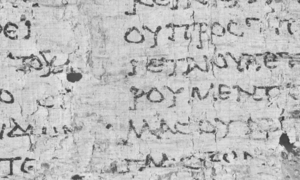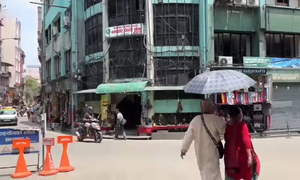항공 안전 현실적 문제만 고려해야
국제민간항공기구(ICAO)의 옵서버 지위 부여는 쉬운 문제다. 미 의회는 이번 여름 회기 중에 중요하지만, 별로 주목받지 못한 법안을 통과시켰다. 이번에 통과된 공법 113-17은 미 국무장관이 ICAO의 옵서버 지위를 대만이 얻도록 만드는 전략을 개발하고 진전 상황을 미 의회에 보고하도록 의무화한다.
과거에 상하원은 이런 노력에 앞장서도록 미 행정부에 촉구한 바 있다. 새 법안은 과거 ‘미 의회의 양식’을 재확인하는 것이다.
제2차 세계대전이 끝난 이후 ICAO는 전 세계의 “안전하고 정기적이며 효율적인 운송”을 보장하기 위해서 노력해 왔다. 중국이 가입을 방해할 수 있기 때문에 대만은 이 기구의 회원국 지위가 없다. 같은 이유로 대만은 유엔과 다른 많은 국제기구에도 가입하지 못하고 있다.
 |
| 밥 돌 前 美 상원의원 |
대만 경제는 그에 상응한 규모를 자랑한다. 이런 사실을 외면하고는 안전을 보장할 수 없고 정치적 이유로 외면할 수도 없다. 항공운수는 현대 세계에서 중요한 요소이며 미국과 대만을 오가는 여객 운항의 안전과 효율에 대한 미국의 이해관계가 더욱 커졌다.
작년 10월 대만은 미국의 비자면제 프로그램이 적용된 37번째 나라가 되었다. 대만 시민들이 상업 또는 개인 볼일로 미국을 단기 방문하여 체류할 경우 비자를 받지 않아도 된다는 것을 의미한다. 이런 조치는 미국을 방문하는 대만인 수를 급격히 증가시킬 것으로 기대된다. 현재 양국을 오가는 항공편수는 매주 400편이다.
이런 상황에서 대만이 ICAO의 옵서버 지위를 얻는 것은 분명히 매우 중요한 의미를 지닌다. 즉 승객과 화물의 안전도와 서비스의 신뢰도를 높일 필요를 충족시킨다. 특히 옵서버 지위는 대만이 최신 항공 운항 방식을 훨씬 효율적으로 사용하고 ICAO의 개정된 규정을 더욱 신속하게 입수하며 새로운 조직제도 및 절차의 시행을 더욱 원활하게 할 수 있도록 만든다.
또한 세계적인 테러와의 전쟁에서 협력 및 조정의 강화도 의미한다. 이는 국제사회가 더욱 신속하게 통일된 조치를 선제적으로 취할 수 있는 역량을 잠재적으로 증가시킨다.
대만의 옵서버 지위 획득을 위해 미국이 앞장서는 것은 대만의 각종 국제기구 참여를 미국 정부가 지원하는 정책과 일맥상통한다.
이와 관련하여 좋은 선례가 존재한다. 2009년 신종 플루 유행 때와 2003년 사스 위기 발생 때 중국의 방역에 대한 국제사회의 거센 비판이 제기된 후 대만이 세계보건기구(WHO)의 옵서버 지위를 얻는 것에 대한 반대를 중국이 접었다. 전염병 확산을 막고 국민의 건강을 지키기 위해 가능한 모든 조치를 취하는 것이 합리적이기 때문이었다.
WHO의 경우와 마찬가지로 ICAO도 대만 같은 비회원국들이나 단체들을 옵서버로 참여시키는 제도적 장치를 갖고 있다.
미국 정부가 다음 ICAO 총회 때 이런 위험한 잘못을 시정하도록 미 의회가 촉구하는 것은 올바른 조치다. 간혹 외교와 주권의 모순된 문제가 발생하는데 이번에는 해결이 쉬운 사례다.
워싱턴타임스·정리=오성환 외신전문위원
밥 돌 前 美 상원의원
Giving Taiwan a role in safer air transportation
By Bob Dole
Observer status in the global aviation organization is a no-brainer
The current Congress stands accused of not accomplishing much. Before its summer recess, however, it passed a significant, but little-noticed, piece of legislation. Public Law 113-17 directs Secretary of State John Kerry to develop a strategy to obtain observer status for Taiwan in the International Civil Aviation Organization and report formally to Congress on the administration's progress.
The House and Senate were already on record in urging the administration to take a leading role in securing observer status for Taiwan. This new law puts teeth into the earlier "sense of the Congress."
Since the end of World War II, the International Civil Aviation Organization has worked to ensure "safe, regular, efficient and economical air transport" around the world. Taiwan has no status in the organization because China is able to bar its participation, just as it does in the United Nations and many other international organizations.
This opposition is rooted in China's claim of sovereignty over Taiwan and its insistence that other countries not recognize Taiwan as a separate nation. Like many other countries, the United States attempts to straddle the middle: It does not recognize China's claim to Taiwan, but it also does not recognize Taiwanese sovereignty. I write not from the middle, but rather as someone who championed the Taiwanese cause in the Senate and who now, as a private citizen, helps to advance the country's agenda in Washington.
China's blocking of Taiwanese status in the International Civil Aviation Organization carries Beijing's nonrecognition policy past the point of absurdity. Put aside the political and legal issue of sovereignty and diplomatic recognition and consider only the facts on the ground - or, in this case, also in the skies. The airspace under Taiwan's control covers 180,000 square nautical miles, and Taipei provides air-traffic control services to approximately 1.2 million flights annually. Each year, 40 million passengers pass through this zone. The airport in Taipei, Taiwan's capital, is one of the 10 largest cargo and 20 largest passenger airports in the world.
Taiwan's economy is correspondingly large. None of this can safely be ignored, nor should it be brushed under the rug for political reasons. Air transport is vital in the modern world, and the United States' interest in safe and efficient passenger air traffic to and from Taiwan recently became even stronger: Last October, Taiwan became the 37th nation admitted into the U.S. Visa Waiver Program, which means that Taiwanese citizens no longer require visas to enter the United States for short commercial and personal trips. This is expected to increase dramatically the number of Taiwanese visitors to the United States. Already, there are 400 flights per week between our two countries.
What Taiwan's attainment of observer status in the International Civil Aviation Organization means in all of this is painfully obvious; namely, increased safety and reliable air service for passengers and cargo. Specifically, this status would enable Taiwan to maintain up-to-date aviation practices with greater efficiency, quickly secure time-sensitive amendments to organization regulations, and prepare more ably for implementation of new organization systems and procedures. It would also translate into increased cooperation and coordination - and greater potential for pre-emption and swift, unified action - in the global war against terrorism.
Leading efforts to secure status for Taiwan as an observer is consistent with the U.S. government's policy of supporting Taiwan's meaningful participation in international organizations. Indeed, there is good, recent precedent for this on both the United States' and China's parts: In 2009, in the wake of the swine flu epidemic and following intense criticism of Beijing's handling of the 2003 SARS pneumonia crisis, China dropped its objections and allowed Taiwan - albeit as "Chinese Taipei," a less sovereign-sounding appellation of Beijing's choosing - to obtain observer status in the World Health Organization. Here, too, it made no sense to do less than everything feasible to prevent the spread of communicable illnesses and, more generally, improve the public health. As with the WHO, mechanisms are already in place in the International Civil Aviation Organization to allow non-contracting countries, such as Taiwan, and other bodies to be accredited formally as observers.
Congress is right to call upon the administration to correct this potentially dangerous wrong at the next triennial International Civil Aviation Organization assembly, which will be held in Montreal this month. Once in a great while, diplomacy and statecraft present apparent dilemmas that are, in fact, no-brainers. This is one of them.
[ⓒ 세계일보 & Segye.com, 무단전재 및 재배포 금지]
![[설왕설래] 우주항공청과 존 리](http://img.segye.com/content/image/2024/04/24/128/20240424518768.jpg
)
![[세계포럼] ‘절대의석’이 부른 삼권분립 위기](http://img.segye.com/content/image/2023/06/07/128/20230607522919.jpg
)
![[세계타워] 허먼 멜빌의 ‘모비딕’ 완독기](http://img.segye.com/content/image/2024/01/31/128/20240131519365.jpg
)
![[다문화칼럼함께하는세상] 언제까지 미생일까?](http://img.segye.com/content/image/2024/04/24/128/20240424518742.jpg
)








